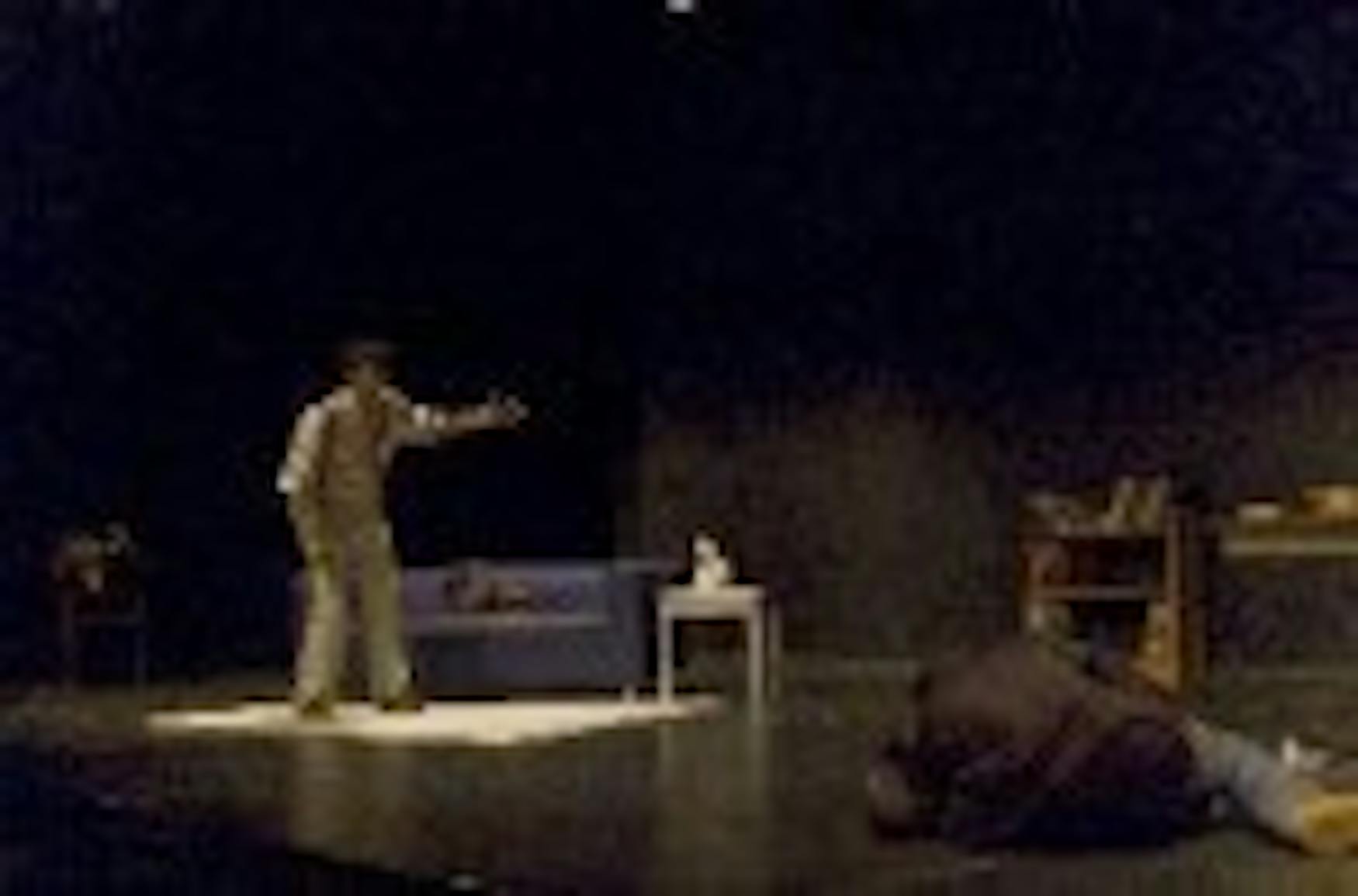Blue/Orange' deemed successful
The Free Play Theatre Cooperative's most recent offering skillfully portrayed the moral dilemma that consumes two psychiatrists and their patient.
Joe Penhall's Blue/Orange, staged last week in the Merrick Theater in Spingold by Free Play Theatre Cooperative, is not merely set in England but also embodies that nation's unique dry humor, intellectualism and social stratification.The play opens in a flurry of "innits" and "buggers" as psychiatrist Bruce Flaherty (Samson Kohanski '08) futilely tries to soothe his patient Christopher's (Sheldon Best '08) frustration with having only a few hours left in a four-week psych ward stay. Dressed in sweatpants and a white tee, Best paced and chafed within Bruce's dully furnished office, physically asserting his character's anxiety and anger. Meanwhile, gray-sweatered Bruce remains uneasily conscious of his educational and social advantages over Christopher. Kohanski skillfully eluded the professorial cliché his character sometimes approaches by bringing a quiver of sensitive uncertainty to the most didactic lines. Over the course of the first lines, Best and Kohanski maintained momentum, rapidly shifted power dynamics and even managed to draw laughs.
The action takes place over two days, as Bruce and his supervisor, Robert Smith (Josh Mervis '08), debate the diagnosis and, by extension the fate, of Christopher. Bruce worries that their patient is schizophrenic, while Robert argues that his idiosyncrasies are attributable to his African descent. In the balance is whether Christopher will be released from the hospital or forced to undergo lengthy inpatient treatment. The play's success hinged on Best's understanding of Christopher's psychological state, a fact obscured by his flawless negotiation between benign and dangerous lunacy.
Mervis sometimes failed to distinguish between Robert's mad-scientist quirks and the intelligently wrought social attitudes that make him Bruce's worthy opponent. After the energetic opening discourse between Bruce and Christopher, his entrance brought a disorienting restraint to the play. Throughout the first act, Mervis punctuated his lines with hand-flutters, containing all his physical expression in his forearms as if expounding from behind an invisible podium. It wasn't until the second act required Robert to sit that he seemed fully comfortable wielding Robert's considerable professional leverage over Bruce.
Both psychiatrists' arguments are alternately insightful and dismissive of Christopher's situation, a fact that each exploits to gain moral ground over the other. As Bruce and Robert contradict each other with accusations of racism and threats to each other's careers, Chris terrorizes them with his guilt-provoking mercurial emotions. The doctors' contentions thus sublimate into a crisis of their entire cultural system, complete with race and class anxiety. For their diligent and nuanced exploration of these rapid-fire ideas, director Becky Webber '08 and all three actors deserve high praise.
While constantly renegotiating the tenuous political dynamic between their characters, the actors successfully brought out their entertaining humanity. Kohanski in particular delivered a performance full of subtly humorous moments, drawn from the refined humility of wilting idealism. Mervis used his abrasive character to draw laughs more forcefully. At one point his harshly sarcastic delivery inspired a "wow" from an audience member. He broke character, betraying amusement at the slip, then whirled around to complete his diatribe about Robert's professional superiority over Bruce.
It was the most abrupt moment in an evening of fluid events. Free Play's interpretation of Penhall's three-way power struggle skirted deftly between exposition and emotion, lofty commentary and raw humor. The cast for the most part achieved a rare balance between depth and vigor that readily justified the play's three-act length.



Please note All comments are eligible for publication in The Justice.